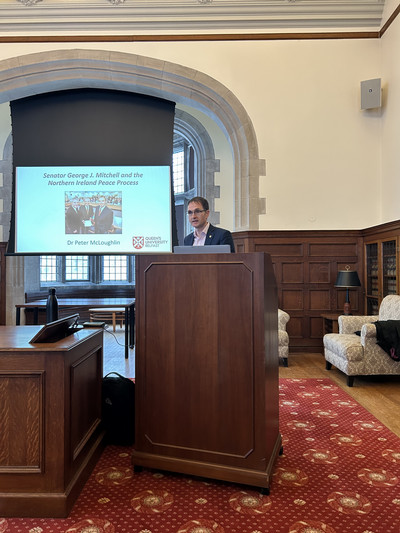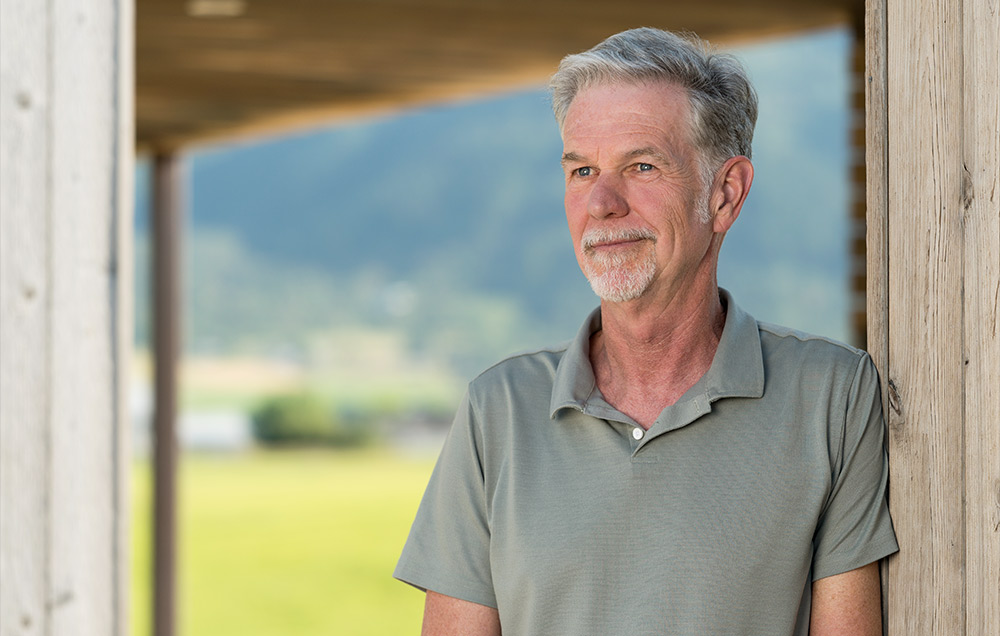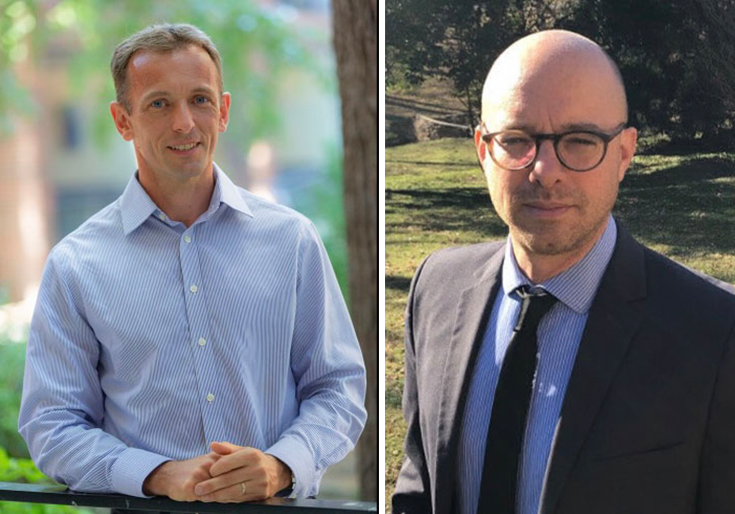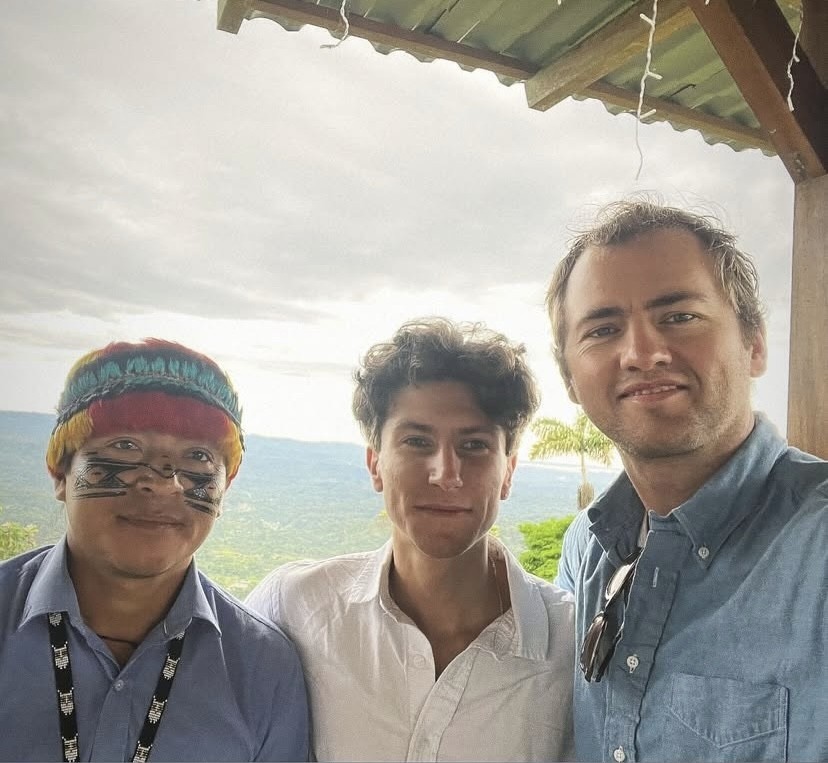Online Teaching: Government Class Tracks the Elections
By Tom PorterWith each election cycle, Michael Franz teaches Campaigns and Elections (GOV 2060). The professor of government sees it as a good opportunity for students to feel the excitement of studying an election as it happens. This time around, however, he was not anticipating quite this much excitement.
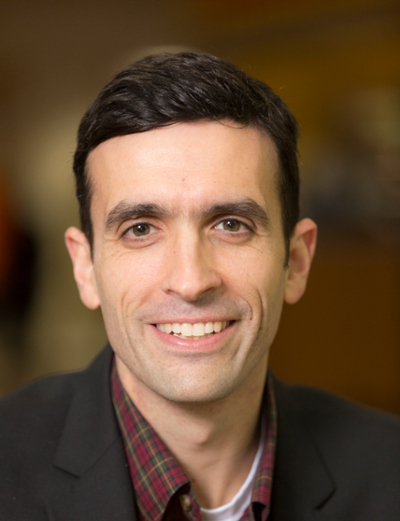
“We spend some time at the start of each class discussing developments in the presidential race, and it often seems like we have one explosive development after another,” said Franz. Whether it’s the death of Supreme Court Justice Ruth Bader Ginsburg and the ramifications of that, or the President getting COVID-19, or the second presidential debate getting canceled, it’s sometimes been hard for students to take a breath amid such a hectic news cycle.
Normally, Franz would teach two classes in a semester, but this time he chose to offer the same course to two separate classes because he correctly anticipated the high level of interest that Campaigns and Elections would attract. “This is such an unprecedented election that I knew there would be huge interest, and I didn’t want to have to turn down lots of students.”
The two classes comprise nearly eighty students and are divided into six groups in total (two lots of three). Each group consists of between twelve and sixteen students and meets for two forty-five-minute synchronous sessions per week. “The students are in so many different time zones,” explained Franz, “that there are classes held throughout the day.” In a typical week, Franz will deliver nine hours of synchronous instruction to students across the US, as well as in Asia and the Middle East.
"The small group size enables classmates to get to know each other, even though they’re physically separated."
Class Content
The course itself is essentially about the federal elections, said Franz, meaning the presidential and congressional races. “We cover all we can but focus on rules of elections, campaign financing rules, ballot access rules, and other features of the electoral system in America. Students also look at strategic decisions that campaigns make,” he added: “why they air certain ads, how much money it takes to win a race, and what issues candidates emphasize.”
Each student is assigned their own congressional race to track and become experts in. They report back to the class what they’ve learned about the latest news and ad campaigns in those races. “The presidential race itself is not assigned to anyone,” said Franz, “but, as I mentioned, we do spend a lot of time discussing it in class.”
Two Student Perspectives
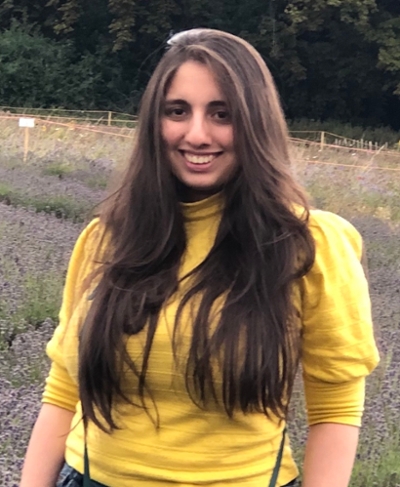
Nimra Siddiqui '22 is following Nebraska’s second congressional district, where Republican incumbent Don Bacon is running against Democratic challenger Kara Eastman. It’s expected to be a close race, she said, since Bacon won by just a two percent margin (less than 5,000 votes) in 2018. “The district is a toss-up, so I’m currently researching different polls for this race and trying to get a sense of the small differences in results among them.”
Siddiqui said she signed up for the class to learn more about American democracy after growing up in the constitutional monarchy of Qatar, in the Persian Gulf. “I began by learning the basic terms: ‘primaries,’ ‘general election,’ ‘congressional race,’ etc. Now, I am examining topics like bipartisanship, campaign finance, polling, and the role each plays in the weeks leading up to the election.”
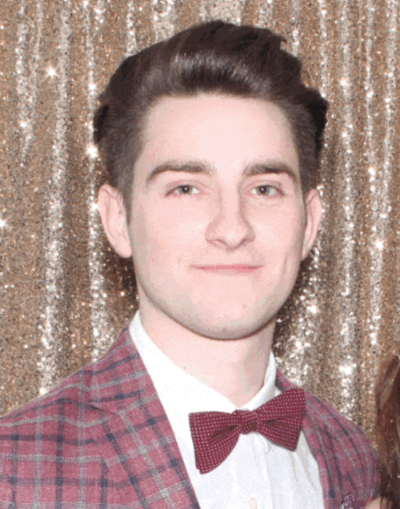
Gabe Batista '23 chose the class after having previously worked on a campaign “and got really into the process.” He also enjoyed taking Franz’s Intro to American Government (GOV 1100) class in his first year. “I found Professor Franz a very engaging teacher, and this experience inspired me to look into government further, so I'm probably going to declare a government major at the end of this year,” said Batista.
He has his eye on California’s twenty-fifth congressional district, which he describes as “relatively tame,” as it has no serious stakes. It’s not been without drama, however, following a special election earlier this year, prompted by a sex scandal forcing the Democratic incumbent to step down. The seat is now held by Republican Mike Garcia and is regarded as another close race, he said. The fact that there was a special election back in March, Batista added, “makes fundraising and finance tracking tricky, as the financing reports have to cover two races.”
Creating a Community
The class has a number of asynchronous components done largely on Blackboard, including Franz’s lectures—typically delivered twice a week—and widely used discussion boards. Discussion boards were used before the pandemic, explained Franz, but they are much more central to the class under the online teaching model.
“Students contribute to these discussion boards by sharing ideas and filling in spaces left blank for information about things like campaign ads and financing. They also write short reflection papers based on their assigned readings, which are largely about recent elections, such as the 2018 midterms or the 2016 presidential race,” he added.
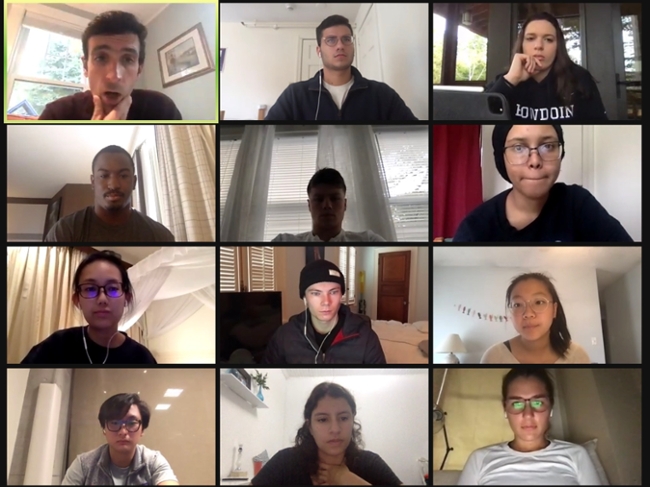
Also helping to foster a sense of community is the small size of the synchronous meetings, said Franz. “What’s nice about it is, when we meet, all we do is talk. Students have already listened to my lectures, so this is a place for conversation, and the small group size enables classmates to get to know each other, even though they’re physically separated. We’ve also experienced very little in the way of connectivity problems.”
Gabe Batista and Nimra Siddiqui said the small group discussions mean students know each other better than they would in a large lecture theater or a bigger discussion group. “It's created a solid sense of community within the limited framework that technology allows for,” explained Batista. “The same is true for discussion boards,” added Siddiqui, “where I am able to learn about the many races that my classmates are following.”
With the election just two weeks away, Franz said he expects plenty of news to react to after November 3. “It’s likely we won’t know the outcome straight away, so it could be a good opportunity to learn about how votes are counted, about exit polls and their accuracy, and to look at campaign finance tallies.” And, of course, he added, students must brace themselves for the possibility of more news bombshells. “Given the rhetoric we’ve heard coming from the White House, the election results themselves could herald a new round of explosive developments for the class to discuss.”
Michael Franz is codirector of the Wesleyan Media Project, a collaborative initiative that tracks and analyzes advertising by federal and gubernatorial candidates in real-time during elections.
